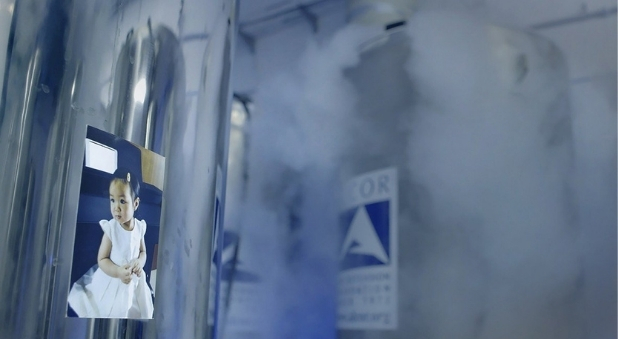Hope Frozen – A Quest To Live Twice
Streaming on Netflix
The death of a loved one is always tragic, but the anguish seems to increase exponentially when the one who dies is a child.
In this award-winning documentary, we follow the story of the Naovaratpong family in Bangkok, whose lives are thrown into turmoil when their youngest member, a sunny two-year-old nicknamed Einz, is diagnosed with a highly aggressive brain tumour. It’s a type of cancer, dad Sahatorn tells us, that “no one has ever survived”.
Trying every available option
As a family steeped in science, he and his household are willing to try every available means to heal their beloved daughter and sister. Einz endures many surgeries, rounds of chemo and radiation but keeps smiling through it all, surrounded by those who love her.
We are brought into the family circle through home videos that show the tremendous depth of this love –before and after her diagnosis – which is a tremendous privilege to watch. There are also honest and profoundly moving interviews with Sahatorn, mum Nareerat and their teenage son Matrix.
“I had to keep fighting until we were sure that there was no chance,” Sahatorn says. “I didn’t have the right to decide… she did.”
A quest to live twice
Sadly, once it becomes clear Einz might not survive, the goal posts shift. Sahatorn ponders the research he has undertaken during her illness and starts to think that perhaps she could be cryonically frozen. “This was the way to keep her,” he says. “We must keep her.”
For me, this is where the tragedy truly begins. Rather than remember his previous conviction that he didn’t have the right to fight if there was no chance, he becomes convinced that by cryonically freezing Einz’s brain, she will be able to continue living in some form – and one day, by the power of future technology – come back to life.
Unsurprisingly, the rest of the family needs some convincing of the wisdom of this. Death is death, Einz’s grandparents say. What is the point? And would future life be possible anyway? Not to mention Buddhist beliefs about the body, the soul and reincarnation, which prove a major challenge to the family when their story becomes public.
With all this emotion and doubt swirling about, the subsequent process they and Einz go through is fascinating to watch, but alien in the extreme. It’s a decision they make out of love, but we see that even those familiar with the science have differing opinions about methods now, and possibilities in the future. It’s all so tenuous.
Placing your hope in science
Above all, from the standpoint of Christian faith it is so tremendously, gut-wrenchingly sad. In their grief, the Naovaratpongs place their hope in science – not even in the religious faith they profess. They somehow feel that Einz’s life continues because of the cryonic process, and you can’t help but feel that, as a result, they will never fully work through their grief.
Even Matrix, as a teenage boy, accepts that his future as a scientist will be to pursue the dream of bringing her back – something he says would be “the greatest achievement of my life”.
Hope Frozen is valuable but difficult viewing. Valuable because of the cultural insights and observations about grief it provides, but difficult because the family is putting its hope in things that are uncertain. They hope to see Einz again. They hope the technology will exist in the future to give her new life – even if it is after they are gone.
If only they were aware of the certainty of hope in Christ, with a future for all of them where there will be no more death, or sorrow, or tears.






















